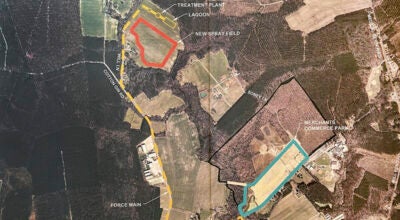Murfreesboro rectifies finance-related issues
Published 4:05 pm Friday, September 10, 2021
|
Getting your Trinity Audio player ready...
|
RALEIGH – Murfreesboro officials have resolved a number of finance and bookkeeping issues, and the Local Government Commission (LGC) removed the town from a state list for government entities battling financial and governance challenges.
The Hertford County town of 2,915 residents was flagged for high- and moderate-risk concerns over internal bookkeeping controls, and concerns with financial issues related to its general fund and water and sewer fund. The situation landed the town on the LGC’s Unit Assistance List (UAL) for struggling local governments.
“Murfreesboro officials demonstrated a willingness to find out what’s right, get it right and keep it right, and through dedicated efforts were able to work their way off of the Unit Assistance List,” said State Treasurer Dale R. Folwell, CPA, who chairs the LGC. The commission is staffed by the Department of State Treasurer’s (DST) State and Local Government Finance Division.
Murfreesboro Town Administrator Carolyn Brown succinctly explained the reason for Murfreesboro’s success.
“Hard work. Keeping on top of all spending. Dedicated employees,” she said. “The LGC gave the town great guidance.”
When the LGC released its most recent UAL it no longer included the names of 38 units — 27 municipalities, eight counties and three utility districts.
“Like Murfreesboro, these other units made such significant improvements that they were no longer included on the list,” Folwell noted.
The General Assembly established the LGC in 1931 to help address the problems in local government finance caused by the Great Depression. In 1933, 62 North Carolina counties, 152 cities and towns and some 200 special districts were in default on the principal, or the interest, or both of outstanding obligations.
As a direct result of that history, units of local government in North Carolina usually must seek the commission’s approval before they can borrow money. In reviewing each proposed borrowing, the commission examines whether the amount being borrowed is adequate and reasonable for the projects and is an amount the unit can reasonably afford to repay. Because of this approach, the LGC has helped North Carolina maintain a stellar reputation for fiscal responsibility among states.
The State and Local Government Finance Division (SLGFD) staffs the LGC. It oversees the finances of local governments and public authorities in North Carolina and manages the sale and delivery of most state and local debt.
The entities subject to this oversight are a diverse group of over 1,100 municipalities, counties, boards of education, public hospitals, utility districts, mental health agencies, housing authorities, airport authorities and other public authorities.
This oversight includes ensuring that each unique entity is following industry best practices with regards to their financial operations; complying with the North Carolina Local Government (or School) Budget and Fiscal Control Act; following all governmental accounting standards as set by the national Governmental Accounting Standards Board; and ensuring that all debt is properly issued and serviced in accordance with debt agreements as approved by the Local Government Commission.
The SLGFD markets and sells bonded debt on behalf of issuing local governments and the state. The division also serves as staff to the state of North Carolina and the North Carolina Capital Facilities Finance Agency in fulfilling their respective statutory functions and responsibilities.


